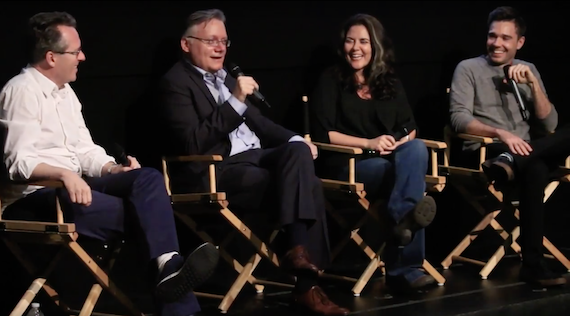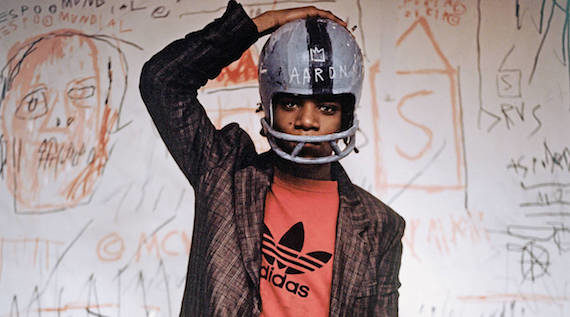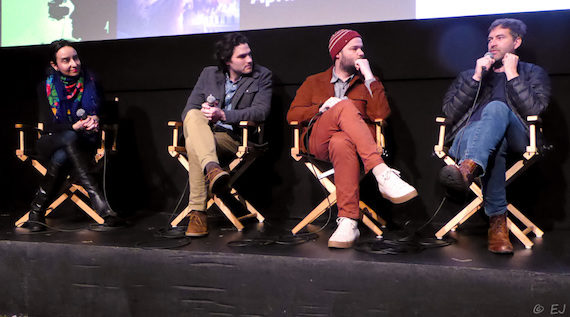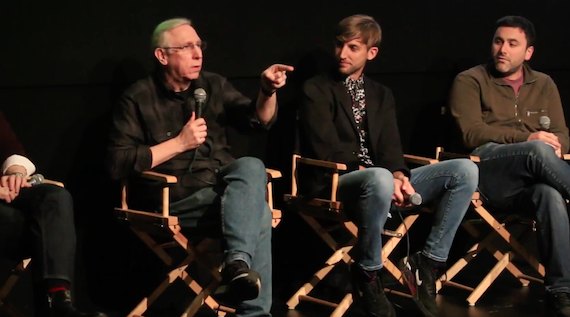
Pure Nonfiction at IFC Center, the popular documentary series previously known as Stranger Than Fiction, announced its winter season line-up, featuring ten documentaries playing from February 5 to March 26. The season opens with UNITED SKATES (Feb 5), winner of the Tribeca Audience Award, about roller skating in black communities across the United States. The season includes sneak previews of two documentaries fresh from their Sundance premieres: Alex Gibney’s THE INVENTOR: OUT FOR BLOOD IN SILICON VALLEY (Mar 14) about the scandal of the fraudulent billion dollar company Theranos and Alison Klayman’s THE BRINK (Mar 26, closing night of the winter season) about the former Trump strategist Steve Bannon spreading his nationalist ideas in Europe.
Each Pure Nonfiction screening features the filmmakers or other special guests in person. The series, launched at IFC Center in 2005 and hosted by Thom Powers and Raphaela Neihausen, was formerly known as Stranger Than Fiction. It has a reputation as “a vital outpost for award-winning documentaries” (New York Times). The change in name aligns the series to the Pure Nonfiction podcast, in which Powers interviews documentary filmmakers, now in its fourth year.
“Pure Nonfiction as a screening series at IFC Center shares the same mission as the podcast to illuminate the art of documentary making, so it makes sense for them to share the same name,” said Powers.
The winter season includes a sneak preview of the new series THE CASE AGAINST ADNAN SYED (Feb 26) based on the case made famous by the Serial podcast. Director Amy Berg will present episode one prior to its debut on HBO. Other sneak previews include IT’S A HARD TRUTH, AIN’T IT (Feb 12) about prisoners learning to make films; and ONE NATION UNDER STRESS (Mar 19) with Dr. Sanjay Gupta trying to uncover why American life expectancy is falling.
Classic revivals are a key part of the screening series. The season includes a double bill (Feb 19) with D.A. Pennebaker’s ORIGINAL CAST ALBUM: COMPANY (1970) about a studio recording of the Stephen Sondheim musical; joined with a new parody of the film from the series DOCUMENTARY NOW! titled ORIGINAL CAST ALBUM: CO-OP. Pennebaker will present the films with other colleagues who were part of the original. Other classics include the 20th anniversary of Doug Block’s HOME PAGE (Feb 21) about the emergence of a confessional culture on the internet; THE TRIALS OF MUHAMMAD ALI (Mar 5) that will memorialize director Bill Siegel who passed away last December; and THAT RHYTHM…THOSE BLUES (Mar 12) in a new restoration of the 1988 film that explored rhythm and blues music in the 1940s and 1950s.
The Pure Nonfiction winter season takes place at the IFC Center every Tuesday night at 7:30 pm for eight weeks, plus special Thursday screenings on Feb 21 and Mar 14. Each event includes a discussion with the filmmakers, followed by a gathering at a nearby bar. Season passes are now on sale for $99 for 10 films. The full season schedule appears below. For more information, visit ifccenter.com/series/purenonfiction
Pure Nonfiction at IFC Center: Winter 2019 Season 7:30pm Tuesdays at IFC Center, Feb 5 – Mar 26
Each show features a Q&A with the director or other special guests
Feb 5: Opening Night – UNITED SKATES (2018, Q&A w/ dir. Tina Brown & subject Reggie)
Feb 12: IT’S A HARD TRUTH, AIN’T IT (2018, Q&A w/ dir. Madeleine Sackler)
Feb 19: Double bill:
ORIGINAL CAST ALBUM: COMPANY (1970, Q&A w/ dir. D.A. Pennebaker & others)
DOCUMENTARY NOW! presents ORIGINAL CAST ALBUM CO-OP (2019)
Feb 21: Thursday special – HOME PAGE – 20th anniv. (1999, Q&A w/ dir. Doug Block & others)
Feb 26: THE CASE AGAINST ADNAN SYED – episode one (2019, Q&A w/ dir. Amy Berg)
Mar 5: THE TRIALS OF MUHAMMAD ALI (2014, Q&A in memory of dir. Bill Siegel w/ his colleagues)
Mar 12: THAT RHYTHM…THOSE BLUES – newly restored (1988, Q&A w/ dir. George T. Nierenberg)
Mar 14: Thursday Special – THE INVENTOR: OUT FOR BLOOD IN SILICON VALLEY
(2019, Q&A w/ dir. Alex Gibney)
Mar 19: ONE NATION UNDER STRESS (2019, Q&A w/ dir. Marc Levin)
Mar 26: Closing Night – THE BRINK (2019, Q&A w/ dir. Alison Klayman)
Tickets for Pure Nonfiction screenings are $17 for the general public and $14 for IFC Center members. A Season Pass covers admission to all 10 evenings and provides free popcorn at all screenings. It is available for $99 ($80 for IFC members).








